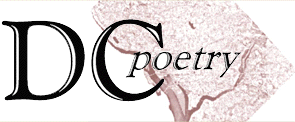to Jalal Toufic for Drew Gardner
Every generation has apocalyptic visions, can't imagine its continuance, as in Rivette's Paris nous appartient (1960), where the exiled American communist journalist, experimenting with Art Brut in his SRO, warns Anne of converging super-militarized oligarchical death waves.
My apartment, which you'll recall from last time, is bathed in the sounds of a Red Bull event by the river, men and women amplified, shouting and generating excitement that somehow gets shunted into product, religious techniques, walking back and forth wireless.
A small amount of movement or sound has come to signify a mouse, a rebuke to systems of control and reduction by which people might be stamped out, round like a nickel and grey, with tails trailing and eyes bulging brown.
Citizens shouted very differently among their own remnants and ruins, Roman and otherwise, on February 15th, in the largest mass protest, against war or anything else, in the world's history, detourning totalizing yelling into group demand, stamping the little silver cans into a huge reflective shield and straining to articulate what should follow, fighting enervation with ideas and engagement rather than dissolved caffeine and sucrose.
The scale of the problem causes fatigue because people create meaning within groups of 5-15, or, extendedly, 50 to 300 or so; Steve says there's a study: one can only love 200 in a life, which seems to be a kind of parameter for the processing of affiliation, a limit which not coincidentally seems to underlie anarchism, though my beliefs run to the materialism which underlies communism; thus it is at that scale, talking to friends, and with that result, a kind of communism, that I have found myself able to articulate a politics, one that proceeds from the scale of my social relations, rather than a totality.
If power, or the means for making and instantiating judgements, is changed in scale by relations, meaning the overlaps or impingements on judgement that form by agreement, force, or ambient internalization, and if every articulation proposes, produces, or reifies sets of relations, then the distribution of power touches every articulation, since every articulation proposes relations.
The contradictions produced by power are shared, and their articulation, by poets and others, is a real, if unwanted, function within society, as is the modeling, in poems and other media, of other possible modes of power.
Power, an inevitable product of varying access to sustenance and care, whether in sibling dyads, as in Margarete Von Trotta's Sisters, or The Balance of Happiness (1979), or, as a poet has recently analogized, through the uneven development of states and artists, necessarily alters bodies, often damaging, even if invisio-neuronally, or actually destroying them, particularly when conceptions of what is necessary and sufficient differ or get distorted, and are brought into proximity and defended and enforced.
The mechanics, the bases and practices, through which power travels and changes scale, by agreement, force, or ambient internalization, is called politics, yet politics does not address bodies as such, except as instantiations of constructs in which power collects or doesn't, categories that can have a directly physical extension, like 'food', or a purely narrative function, like 'justice'.
Narrative is a set of proposed links among artificially segmented perceptions; narration is the act of proposing such links.
For power, there are changes in scale via changes in sets of relations, which can be physical, as when augmenting or protecting bodies with gloves, cars, guns, tractors, planes, coats and computers, all of which change the scale of power; for politics, there are categories and catchments, also physical, casting shadows on never-fully-discrete bodies, and standing for them in the sense that it is to what get called subjects, rather than to bodies, that judgements are ascribed.
In film and fiction, such subjects, multi-faceted categories through which social forces, and thus power, run, are called characters, and turning people into characters is what makes non-novel readers so squeamish about fiction, since doing so, reducing people to attributes, is a kind commodification, or at least reification, one that mimics the out-of-control market system that spawned fiction in the 18th century and with which, necessary changes having been made, we are familiar today.
Yet imagining commodification as leading to the obsessive cataloging of attributes is probably backwards; out-of-control commodification may actually be an outgrowth of a hard-wired predilection for the evaluation of people-as-parts, what scientists call "mate selection," a need regulated by social mores and other constraints.
Turning people into categories via fantasy and will-to-parts is an incredibly effective political tool, since characters do not suffer, die or react in real time, and are constructed for performances within narrow bandwidths very unlike the actual conditions most people face, but alike enough that the reduction is possible, since to resist such reductions requires more energy than to acquiesce.
Although characters, unlike horses and people, cannot respond to an idea that takes the form of force, such as a lash against a coach and six that carries the message 'go', it is as characters that politics prepares people for power, even when attacking one's material extension in space and attempting to reduce one to it. Death as message or story. Let's roll.
Rabbits, who have brains and bodies, are of course extraordinary, and their fierce rabbity love, while occasionally seeming aloof or unintelligible, is in fact one of the main model states; but rather than separating species, the distinction between subjects and 'selves' separates materialism from humanism, since in the place of paradigmatically discrete sui generis a priori units are floating, dynamic, yet fairly clearly delineated points of contact for myriad forces never fully visible or possible to specify but which can, with mutual labor, sustain themselves, remain buoyant, partially self-representational constructs with material bases, reducible by violence to bodies, yet capable of producing excesses like imagination.

